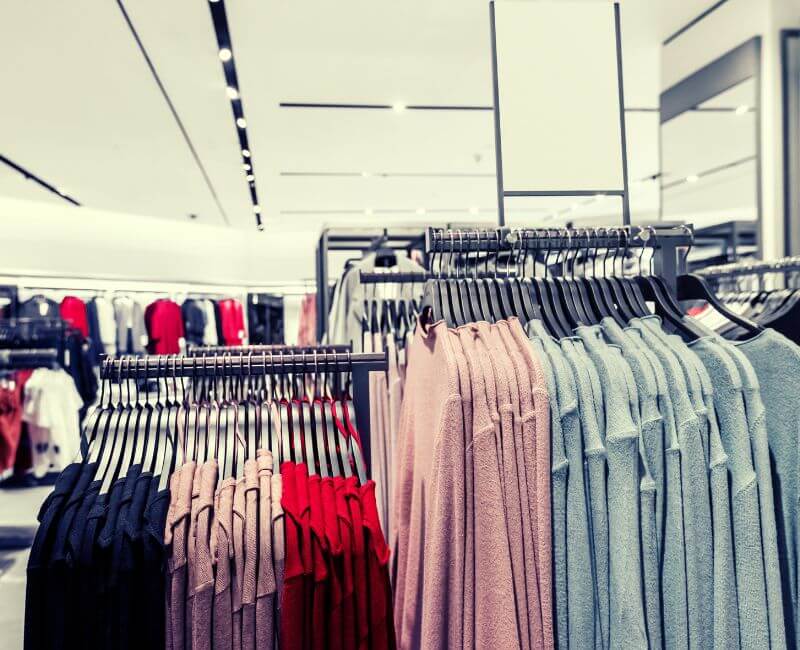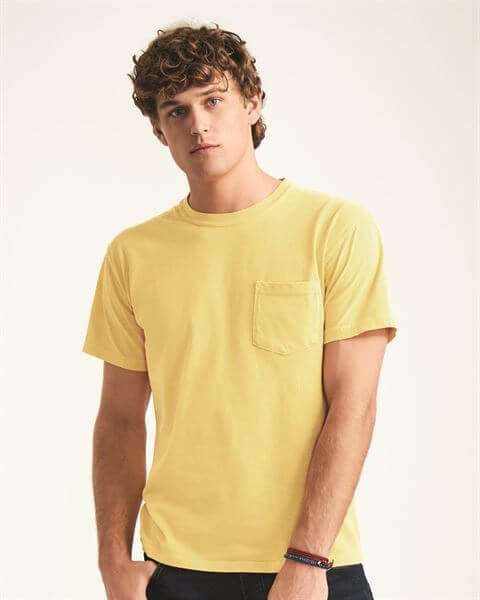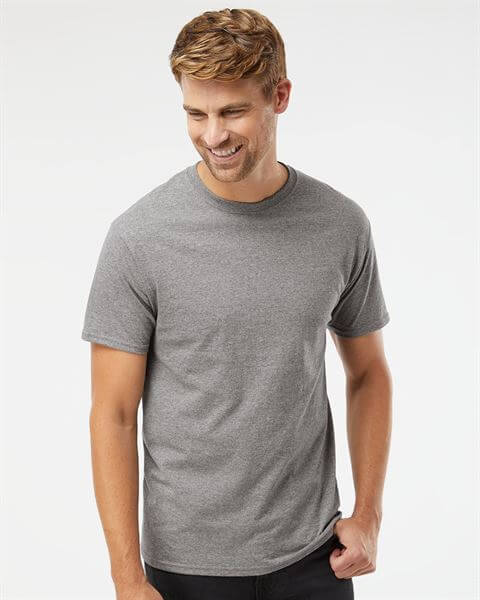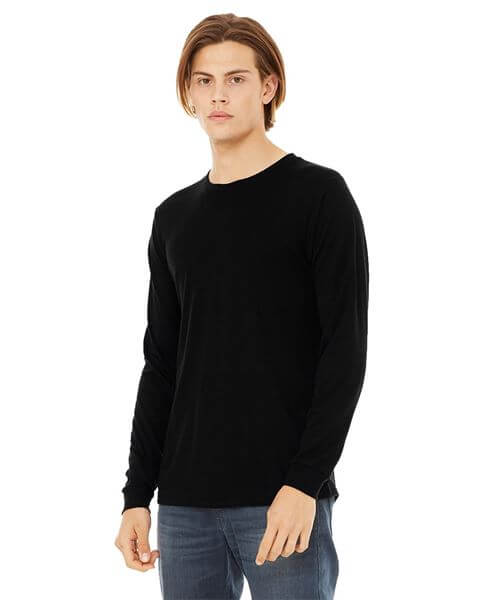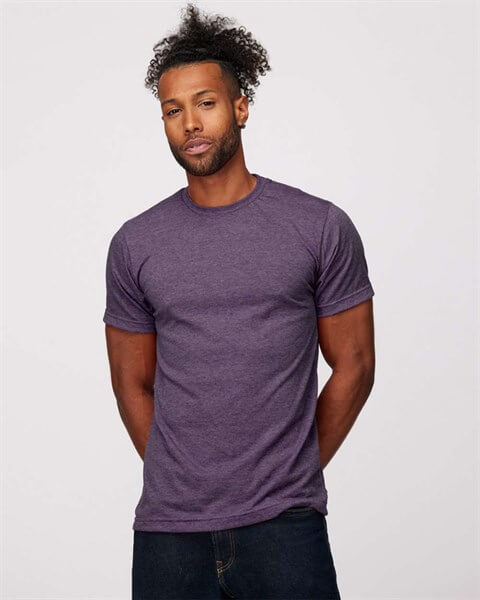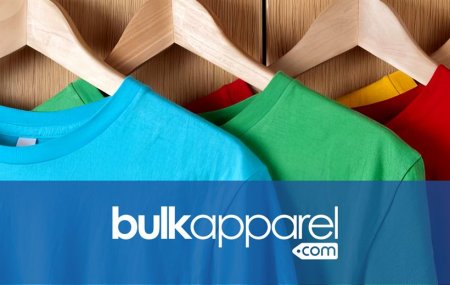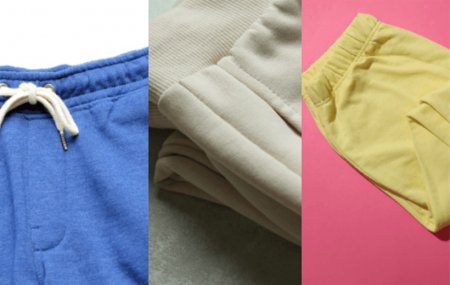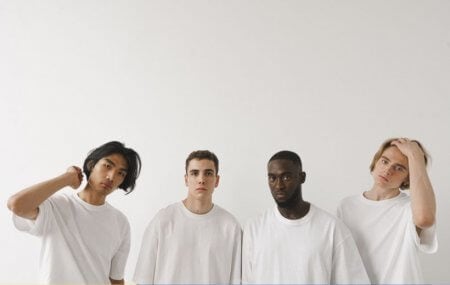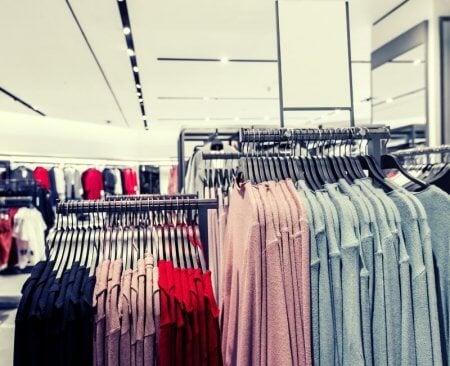New Wave Of Apparel Business
Explore the new wave of apparel business, where innovation meets ethics. Join us in reshaping the future of sustainable, creative, and conscious fashion.
In the ever-shifting landscape of the fashion world, a new wave is sweeping through the corridors of custom apparel businesses, bringing about a breath of fresh air. Gone are the days when established brands and traditional retail models held sway over the industry. Today, we find ourselves at the peak of a remarkable transformation that goes beyond mere adaptation to technology or responding to changing consumer tastes. This is the new wave of apparel business.
This new wave of apparel business signifies more than just a surface-level makeover; it embodies a profound shift in the fundamental approach of the industry. From sustainability initiatives to redefining the very essence of modern fashion, this change is rooted in a holistic embrace of new values and perspectives. Join us as we explore the currents of this new wave of apparel business, where apparel businesses are navigating uncharted waters, driven by a desire for innovation and a commitment to shaping a more dynamic and conscious global fashion landscape. The winds of change carry with them a renewed focus on ethical practices, pushing the boundaries of creativity, and fostering a sense of responsibility towards both people and the planet. Brands are increasingly recognizing the importance of transparency in their supply chains, championing fair labor practices, and minimizing their environmental footprint.
Breaking the Mold: Beyond Traditional Retail
These forward-thinking fashion enterprises are venturing beyond the well-used path, adopting strategies that challenge the established retail paradigms. One noteworthy departure from the conventional model is the increasing integration of technology in the shopping journey. Augmented reality (AR) and virtual reality (VR) experiences are becoming integral elements, allowing customers to virtually try on basic apparel items, envisioning how they fit and look without stepping into a physical store.
E-commerce platforms are also undergoing a transformation, moving beyond the traditional online shopping experience. The integration of artificial intelligence (AI) in online retail not only offers personalized recommendations based on individual preferences but also enhances the overall shopping journey. Chatbots, powered by AI, are providing real-time assistance to customers, offering a seamless and responsive interaction. In addition to these technological advancements, the fashion industry is witnessing a shift in the way blank apparel is distributed. Wholesale t-shirts, for instance, are gaining prominence as businesses explore innovative avenues to reach consumers and streamline their operations.
Direct-to-Consumer (D2C) Dominance
The rise of direct-to-consumer brands is revolutionizing the industry. Cutting out the middleman, these brands establish direct connections with their customers, fostering deeper relationships and gaining valuable insights. By leveraging e-commerce, social media, and data analytics, D2C brands create personalized experiences that resonate with the modern shopper. In the context of the Direct-to-Consumer (D2C) Dominance, BulkApparel plays a significant role as an example of a D2C brand specializing in the sale of wholesale apparel through online bulk purchases. As a D2C entity, BulkApparel eliminates the need for intermediaries, allowing them to establish direct connections with businesses or individuals looking to buy blank apparel in bulk quantities.
The platform leverages the principles of D2C dominance by cutting out the middleman, enabling seamless transactions between the brand and its customers. Through the online platform, Bulk Apparel facilitates a direct purchasing experience, fostering a deeper relationship with businesses or individuals seeking options for bulk t-shirts and apparel.
In addition, the website likely utilizes e-commerce, social media, and data analytics to enhance the overall customer experience. Through these channels, BulkApparel can gather valuable insights into consumer preferences, allowing them to tailor their offerings and services accordingly. This aligns with the core principles of D2C dominance, emphasizing the importance of understanding and responding to customer needs in real-time.
Sustainable Fashion: A Non-Negotiable Trend
In a period when people are increasingly aware of environmental issues, eco-friendly apparel is not just a trendy term; it’s a fundamental aspect of the changing landscape in the custom apparel industry. The new wave of apparel business means we are now emphasizing eco dyed and sustainable materials, ethical production methods, and the promotion of circular fashion to align with the values of mindful consumerism. The growing understanding of the environmental impact of fast fashion has led consumers to favor brands that prioritize sustainability. This shift is not only impacting the fashion sector but is also influencing how society perceives clothing consumption. As consumers become more knowledgeable and selective, the undeniable trend towards sustainable fashion is reshaping our perspective and interactions with the apparel industry, paving the way for a more environmentally conscious future.
For those looking to contribute to this sustainable shift, one effective way is by choosing sustainable apparel items from brands that prioritize eco-friendly practices. BulkApparel offers a selection of environmentally conscious t-shirts that align with the principles of sustainable fashion.
Comfort Colors 6030 Garment-Dyed Heavyweight Ringspun Short Sleeve Shirt with a pocket, available on Bulk Apparel, is a great choice for those seeking comfort and style while supporting eco-friendly and sustainable practices.
Fruit of the Loom 3930R HD Cotton Short Sleeve T-Shirt provides a sustainable option without compromising on quality.
For those preferring blank long sleeves, the Bella Canvas 3501 Long Sleeve Jersey Tee offers a stylish and sustainable choice.
The Tultex 241 Unisex Poly-Rich T-Shirt combines both comfort and eco-consciousness, making it a commendable option for environmentally aware consumers.
By making thoughtful choices in wholesale blank apparel, individuals can contribute to the growing movement towards a more sustainable and eco-conscious future.
Innovations Redefining Style
Innovations are continually reshaping the landscape of style, ushering in a new wave of apparel business where technology and fashion intersect to redefine the very essence of personal expression. The fusion of cutting-edge advancements with the creative realm of fashion has given rise to a myriad of transformative possibilities. From smart fabrics that seamlessly blend functionality with aesthetics to augmented reality experiences that enable consumers to virtually try on wholesale basics, technology is indeed a formidable game-changer within the fashion industry.
One notable aspect of this transformative journey is the emergence of sustainable and eco-friendly materials that not only revolutionize design but also contribute to a more responsible and ethical approach to fashion. The integration of 3D printing and other additive manufacturing techniques is pushing the boundaries of traditional garment creation, allowing for intricate designs and customized apparel tailored to individual preferences. This shift towards personalized, sustainable, and technologically-driven fashion is not only enhancing consumer experiences but also addressing the pressing environmental concerns associated with fast fashion.
Augmented Reality (AR) and Virtual Try-Ons
AR technology in fashion apps and websites also provides users with a more personalized and interactive way to explore products. By overlaying virtual images of clothing onto real-world environments through their devices, consumers can get a realistic sense of how the items will look on them in different settings and lighting conditions. This immersive experience not only helps individuals make more informed decisions about their purchases but also fosters a sense of engagement and connection with the products. As technology continues to advance, the integration of AR in the fashion industry is expected to play a crucial role in reshaping the way people shop and engage with brands online.
Blockchain for Transparency
Blockchain technology is revolutionizing the fashion industry by providing an innovative solution for transparency in the supply chain. This cutting-edge technology empowers consumers with the ability to track the entire lifecycle of their wholesale garments, from raw material sourcing to the final production stages. By leveraging blockchain, fashion brands can establish a secure and immutable record of every step in the manufacturing process, ensuring that ethical practices are adhered to at every stage. This newfound transparency not only fosters trust between consumers and brands but also promotes accountability within the industry. Through the utilization of blockchain, the fashion sector is undergoing a positive transformation, where consumers can make informed choices based on the verifiable and transparent information available about the origins and ethical practices associated with their wholesale bulk order apparel, including the sourcing of wholesale t-shirts.
Community-Centric Approach: Building Stronger Connections
The demands of consumers have evolved in today’s dynamic market, placing a heightened emphasis on the pursuit of authenticity and meaningful community connections. Recognizing this new wave of apparel business is adapting their strategies to align with a community-centric approach, acknowledging the pivotal role of inclusivity, diversity, and active community-building. As consumers seek more than just products, they desire a sense of belonging and shared values. By fostering an environment that transcends traditional consumer-business relationships, apparel businesses can create stronger connections with their audience. Inclusivity becomes a cornerstone, ensuring that diverse perspectives are not only acknowledged but celebrated. Through a community-centric approach, businesses can establish a deeper understanding of their customers’ needs and aspirations, fostering a more authentic and enduring bond that goes beyond mere transactions. In this evolving landscape, the success of custom brands hinges not only on the quality of their products but also on their ability to cultivate a vibrant and engaged community that resonates with the values of their target audience.
Influencer Collaborations and Co-Creation
Partnering with well-known fashion apparel influencers has become an increasingly prevalent strategy in the fashion industry. These collaborations serve as a dynamic tool for brands to expand their reach and establish genuine connections with a broader audience. By teaming up with influencers who have a significant following and influence in the fashion realm, brands can leverage their existing fan base and tap into new demographics. The power of influencer collaborations lies in the ability to merge the brand’s identity with the personal style and charisma of the influencer, creating a unique synergy that resonates with consumers. Additionally, co-creation initiatives have gained traction, involving customers directly in the design process. This inclusive approach not only leads to the development of products that better align with consumer preferences but also fosters a profound sense of belonging and loyalty among customers. As brands continue to recognize the impact of influencer partnerships and co-creation, these strategies have become integral components in shaping the contemporary landscape of fashion marketing.
Advocacy and Social Responsibility
Brands are increasingly utilizing their platforms to champion various social causes and express their stance on pivotal issues. This proactive engagement in advocacy and social responsibility has become a significant aspect of brand identity. By aligning themselves with specific causes, brands not only showcase their commitment to making a positive impact on society but also establish a more profound connection with consumers. This connection is vital as consumers today actively seek out brands that share and resonate with their values. The evolution of consumer preferences has transformed the traditional marketplace, with consumers now favoring brands that go beyond mere product offerings and demonstrate a genuine dedication to social issues. In this socially conscious era, where consumers are more discerning than ever, even in seemingly unrelated sectors like wholesale t-shirts, brands find value in incorporating advocacy and social responsibility into their overall strategy. As a result, the role of brands in advocating for social change has become an integral part of shaping perceptions and influencing purchasing decisions.
Conclusion: Embracing The New Wave Of Apparel Business
In navigating the ever-shifting currents of the custom printed apparel business landscape, one can discern a palpable sense of urgency and excitement. The industry is undergoing a profound transformation, spurred by the relentless march of technological innovation, the growing chorus of sustainability imperatives, and a marked shift towards fostering community-driven experiences. As we stand at the crossroads of tradition and progress, the mandate for brands is clear: adapt, innovate, and embrace a holistic approach that places the consumer at the nucleus, all while upholding the fundamental values of sustainability, inclusivity, and social responsibility.
The seismic changes taking place in the fashion industry are not merely cosmetic; they extend far beyond the surface, penetrating the very core of how brands operate and interact with their audience. The traditional models of production and distribution are being disrupted by the advent of cutting-edge technologies, from AI-driven design processes to blockchain-powered supply chain transparency. In this new era, success hinges on a brand’s ability to not only embrace these technological advancements but also integrate them seamlessly into their operations. Those who fail to do so risk being left adrift in the wake of rapid industry evolution.
Sustainability has emerged as a non-negotiable aspect of the modern fashion narrative. Beyond being a buzzword, it has become a guiding principle that consumers hold dear. The imperative to minimize environmental impact, reduce waste, and embrace ethical sourcing practices is no longer a choice but a prerequisite for survival. Brands that commit to sustainable practices not only appeal to an increasingly conscientious consumer base but also position themselves as pioneers in an industry grappling with its environmental footprint. As we move forward, the fashion landscape will undoubtedly witness a surge in eco-friendly materials, circular fashion models, and a reimagining of traditional manufacturing processes.
Yet, sustainability alone is not enough. Inclusivity has become another cornerstone of the industry’s evolution. The traditional beauty standards that once dominated the runway are giving way to a more diverse and representative showcase of body types, ethnicities, and identities. Consumers are no longer content to be passive spectators; they demand to see themselves reflected in the brands they support. The onus is on fashion houses to ensure their marketing, advertising, and product offerings are inclusive and celebrate the richness of diversity. The brands that recognize and champion this shift towards inclusivity will not only win the hearts of consumers but will also contribute to fostering a more equitable and accepting industry.
Moreover, the concept of community-driven experiences has redefined how consumers engage with fashion. Social media platforms have become powerful tools for brands to connect directly with their audience, fostering a sense of belonging and participation. The era of passive consumption is fading, making room for a more interactive and collaborative approach. Brands that understand the importance of building communities around their products, fostering engagement, and listening to the voices of their customers will flourish in this new landscape.
In this dynamic environment, companies like BulkApparel have exemplified the potential of community-driven strategies. BulkApparel, with its commitment to providing quality wholesale apparel and engaging its customer base through online platforms, stands as a testament to the transformative power of community-centric approaches in the fashion industry. As a brand that values collaboration and actively involves its customers in shaping the brand experience, BulkApparel showcases the efficacy of embracing transformation, fostering innovation, and upholding core values.
In essence, the key to success in the evolving fashion industry lies in a threefold approach: embrace transformation, foster innovation, and remain steadfast in upholding core values. The brands that navigate this delicate balance, akin to BulkApparel, will not only survive the waves of change but will also emerge as leaders, shaping the future of an industry that is, at its heart, a reflection of the times. As we embark on this journey into the unknown, the only certainty is that those who dare to ride the crest of the new wave, like BulkApparel, will be the ones to redefine the very essence of fashion.
Check out our article on why casualwear is becoming the new high fashion trend: Casualwear Is The New High Fashion


